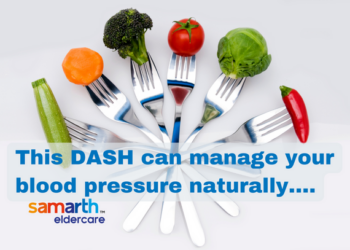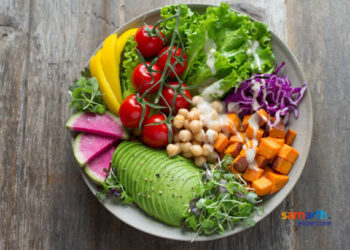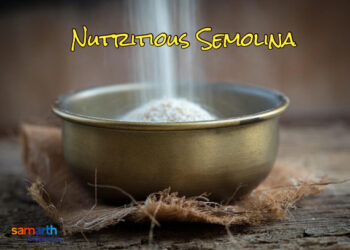Indians are quite familiar with ghee – almost all our households have it in our kitchen. It is made in our Indian kitchens from time immemorial by removing the milk solids through skimming and straining to obtain ghee or clarified butter. Our ancestors knew the true value of pure ghee. The best ghee is the one that is made at home as it is pure and does not have any additives or preservatives, and is often called the desi ghee.
Note: Please remember it has to be consumed in moderation, not more than two or three teaspoons a day. It imparts multiple health benefits only if we eat it in moderation and with the right type of foods (which offer essential nutrients and minerals).
Some of the most common myths surrounding ghee are that it harms our overall health, makes us obese, it can cause heart attack, it is lactose intolerant, etc. A quick look at the benefits of ghee can help clear the myths that surround ghee.
- Ghee is good for your gut and digestive system as it has butyric acid. It is food for the ‘happy gut bacteria” and helps better absorption of nutrients and healthy digestion. Having a small spoon of ghee every morning aids the digestive system. This tip is recommended in Ayurveda and even by our granny! However, do it only in consultation with a qualified doctor, especially if you have some medical conditions. Ghee was supposed to be a natural laxative for easing bowel movements in earlier days. Consuming ghee in moderation aids in weight loss as the fat in ghee is used to boost energy and is not stored up. At the same time, consuming lots of ghee can increase your waistline and add extra flab to other parts of the body.
- It reduces inflammation, especially in the gastrointestinal tract, as butyric acid, the major fatty acid the body needs to fight the inflammation, is present in ghee. Reducing inflammation in the body is essential as that helps prevent the onset of chronic diseases like diabetes, cancer, etc. The antioxidants present in ghee make it anti-inflammatory. A mixture of warm ghee and ‘besan’ (chickpea or Bengal gram flour) applied on skin boils and eruptions occurring during childhood is a common home remedy.
- Ghee is lactose-free, as the ghee-making process removes all the milk solids. It does not cause allergies for those who suffer from dairy intolerance. The solids left behind are tasty and can be consumed with sugar, except by lactose intolerant people.
- Ghee reduces the glycemic index of the foods with which we consume it. So, it regulates our blood sugar levels for slow and sustained energy throughout the day and is diabetic-friendly. Add a spoonful of ghee to the rotis/rice or any other lentil dish. However, administer caution when consuming your favourite Indian sweets made with ghee as they use it liberally.
- Is ghee good for the heart? This has been a highly debatable topic for quite some time now. Ghee is high in monosaturated Omega-3 fatty acids and can be consumed in small quantities to aid in lowering our bad cholesterol. Monosaturated fats are beneficial for the heart as they decrease the bad cholesterol and increase the good cholesterol. Omega-3 fatty acids produce lean body mass and help remove excess body weight. Ghee is rich in antioxidants that help eliminate the free radicals from our bodies. Ghee has several Vitamins, such as A, D, E, and K, and they aid in boosting our immunity and strengthening our bones, joints, and skin. Ghee is beneficial for our skin through internal consumption and even external application for an extra glow as a wonderful, natural moisturizer.
The benefits are indeed quite exhaustive. The above points are convincing enough to bust the myths surrounding ghee being unhealthy. However, ghee is still a pure form of fat, and despite the benefits listed above, the key here is the quantity of consumption. Anything in excess is unhealthy – “even nectar becomes poisonous” when consumed in excess. While a teaspoon or two of ghee is beneficial for health, consuming it in every meal liberally can be detrimental to our health. Ghee doesn’t contain any carbohydrates. However, it does add calories which is why fitness experts advocate limiting its consumption.

Join Now >











